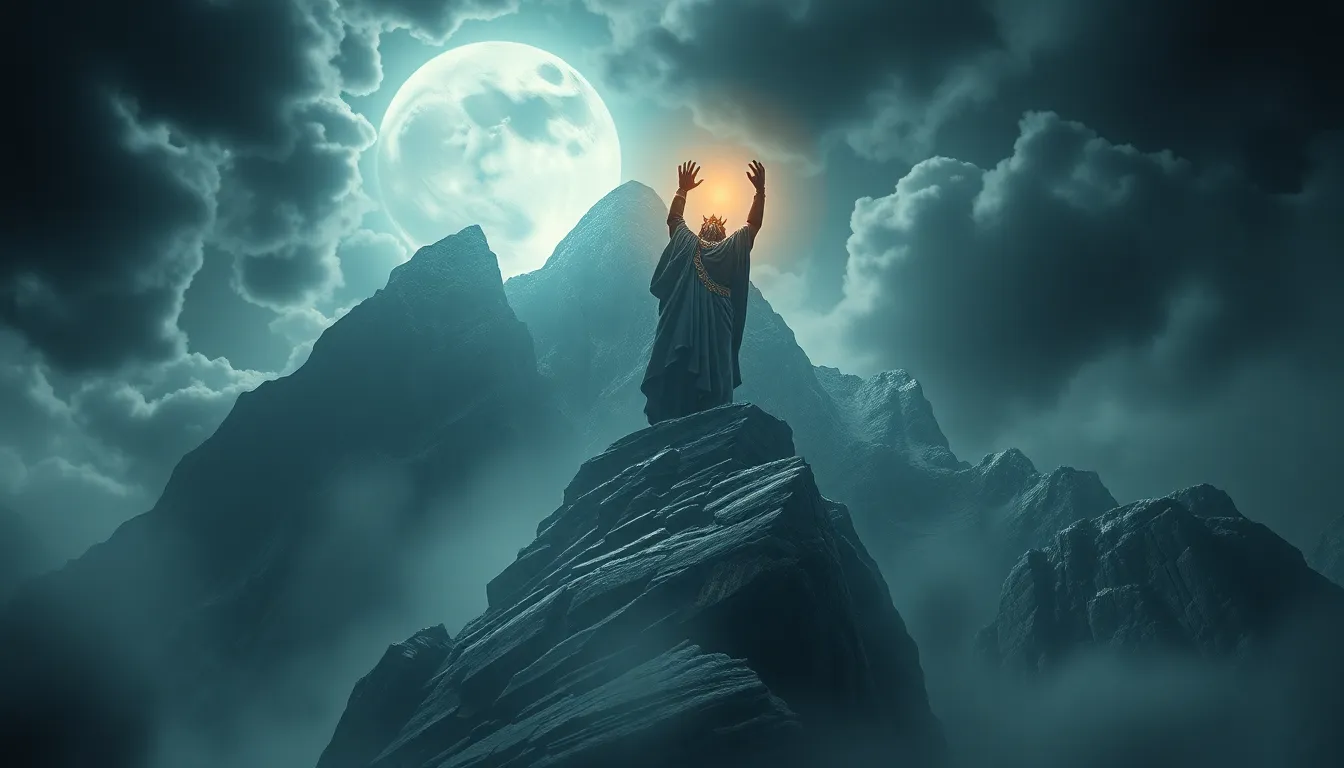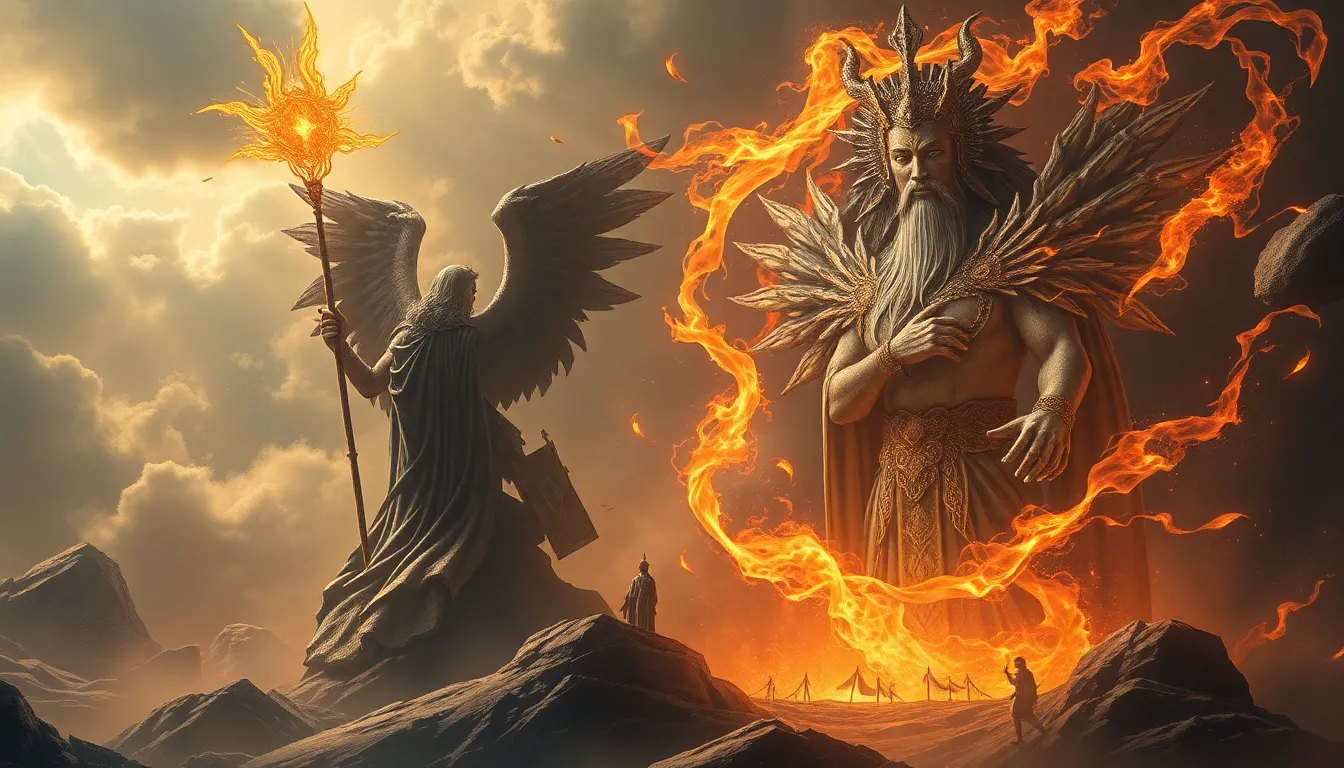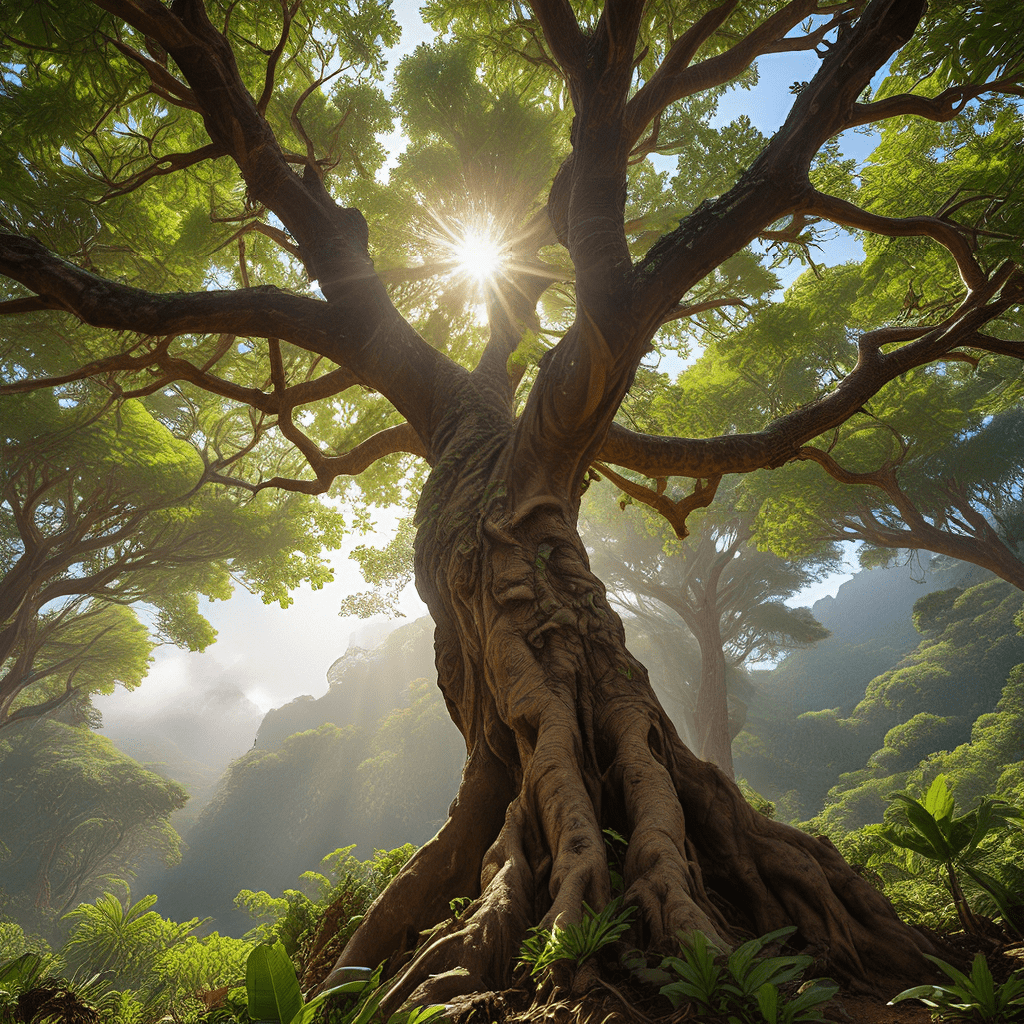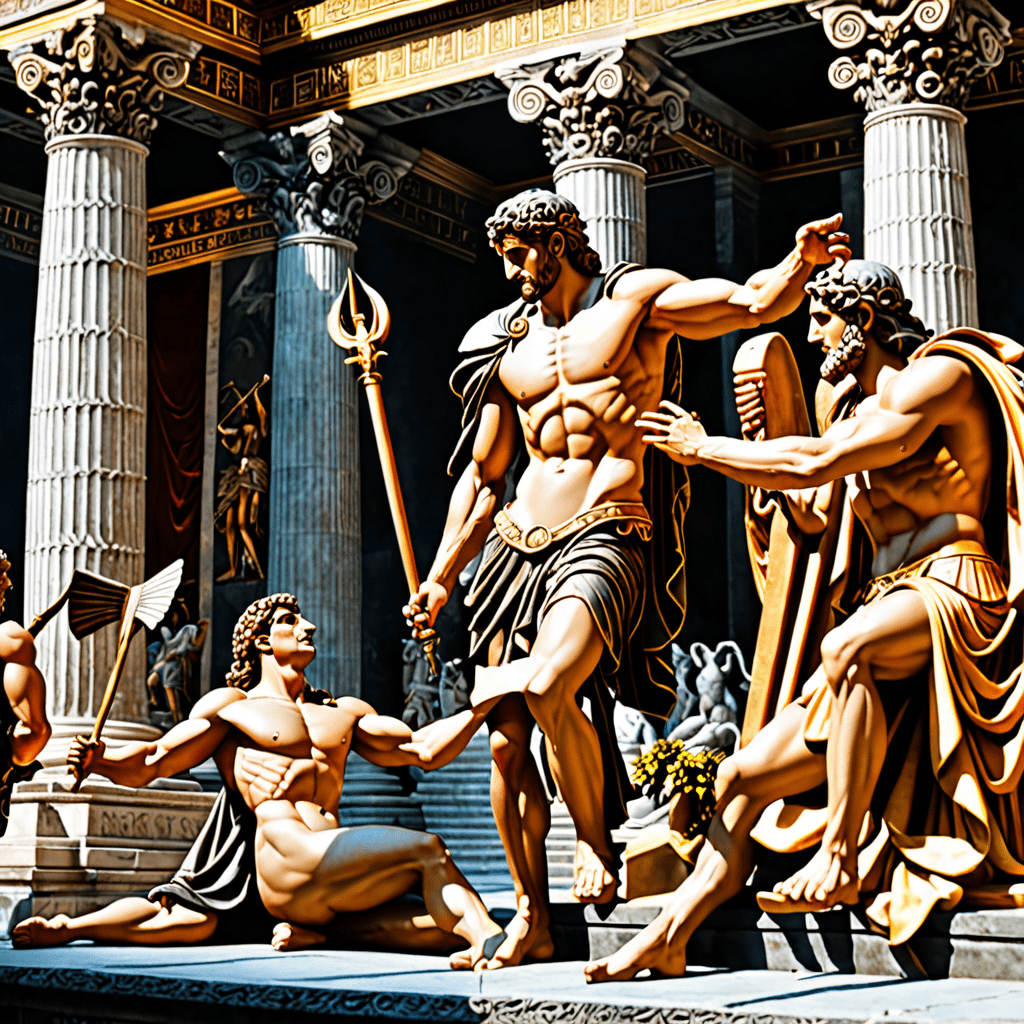The Myth of the Mountain King: Legends of Rulers of the Heights
I. Introduction
The concept of “Mountain Kings” spans various cultures and mythologies, representing rulers or deities associated with mountains, often characterized by their strength, wisdom, and connection to the divine. These figures embody the essence of the mountains they inhabit—immovable, powerful, and deeply revered.
Mountains have held significant importance throughout human history, serving not only as physical landmarks but also as spiritual and cultural symbols. They are places of worship, refuge, and mystery, inspiring countless legends and tales. This article aims to explore the rich tapestry of legends surrounding these formidable figures, known as Mountain Kings, and their impact on cultures around the globe.
II. Historical Context of Mountain Kings
Mountain worship can be traced back to ancient civilizations, where high altitudes were often seen as closer to the heavens. Many cultures revered mountains as the abodes of gods or spirits, creating a profound spiritual connection.
- In ancient Greece: Mount Olympus was considered the home of the gods, ruled by Zeus, emphasizing the divine connection to elevated landscapes.
- In the Andes: The Inca civilization worshipped the mountain gods, or Apus, believing they governed the natural world.
- In Hinduism: The Himalayas are revered as sacred ground, with deities like Shiva residing in their heights.
Folklore surrounding mountains often reflects the spiritual journeys and struggles of humanity, where geography shapes myths, as the towering peaks symbolize challenges and the quest for enlightenment.
III. Prominent Legends of Mountain Kings
Several prominent legends illustrate the diverse portrayals of Mountain Kings across cultures:
A. The Norse Mountain King: Dvalin and the Dwarves
Dvalin, a key figure in Norse mythology, represents the dwarves who inhabit the mountains. They are known for their exceptional craftsmanship and hidden wisdom, often linked to treasure and magical artifacts.
B. The Greek Myth of the Titan Atlas
Atlas, a Titan condemned to hold up the sky, is often depicted as a mountain figure. His strength and endurance symbolize the burdens of leadership and the weight of the world.
C. The Himalayan King: Shiva and his Divine Abode
Shiva, one of the principal deities in Hinduism, is often portrayed meditating in the Himalayas. His association with the mountains underscores their sacred nature and the belief that spiritual enlightenment can be attained through asceticism and solitude.
IV. Symbolism of the Mountain King in Different Cultures
The symbolism of Mountain Kings varies across cultures but often encompasses themes of power, permanence, and spiritual elevation:
- Mountains as Symbols of Power: They represent strength, resilience, and authority.
- The Duality of Mountains: While they can be seen as obstacles, they also serve as sanctuaries for reflection and introspection.
- Significance of Elevation: Climbing mountains is often paralleled with spiritual ascents, symbolizing the journey toward enlightenment.
V. The Archetype of the Mountain King in Literature and Art
Mountain Kings have influenced various forms of literature and art throughout history:
A. Examination of Classic Literature
Classic tales, such as those from the Brothers Grimm or J.R.R. Tolkien, frequently feature mountain rulers, embodying the archetypal hero’s journey.
B. Influence on Modern Fantasy and Storytelling
Contemporary fantasy literature continues to draw inspiration from these archetypes, creating rich, immersive worlds where the Mountain King plays a vital role.
C. Representation in Visual Arts
Visual arts, including paintings, sculptures, and films, often depict Mountain Kings as majestic and imposing figures, capturing their grandeur and mystery.
VI. The Mountain King in Music and Performance
Music and performance art have also embraced the legends of Mountain Kings:
A. Influence of Mountain Myths in Folk Music Traditions
Folk music from various cultures frequently incorporates themes of mountains, reflecting the reverence for these natural giants.
B. Notable Compositions Inspired by the Mountain King Legend
One of the most famous pieces is Edvard Grieg’s “In the Hall of the Mountain King,” which captures the eerie and majestic essence of the mountain realm.
C. Role of Theater and Dance
Theater and dance performances often interpret these legends, bringing to life the struggles and triumphs of the Mountain King archetype.
VII. The Psychological and Emotional Resonance of Mountain Kings
The Mountain King serves as a powerful psychological archetype:
A. Exploration of the Mountain King as a Psychological Archetype
These figures represent the inner struggles of individuals, embodying the challenges faced in pursuit of greatness.
B. Human Struggles and Triumphs
Mountain Kings symbolize resilience and the journey toward overcoming obstacles, reflecting humanity’s desire for achievement.
C. The Allure of the Unattainable
The legends evoke aspirations and fears, illustrating the dual nature of ambition—the pursuit of greatness versus the risks of failure.
VIII. Modern Interpretations and Reimaginings
In recent years, the Mountain King has undergone various adaptations:
A. Contemporary Adaptations in Literature and Media
Modern retellings of mountain myths appear in books, films, and television series, often reinterpreting traditional narratives.
B. The Mountain King in Video Games and Virtual Reality
Video games frequently feature Mountain Kings as formidable foes or allies, immersing players in epic quests.
C. Reinterpreting the Legend in Modern Environmental Contexts
Today, the symbolism of mountains is often linked to environmentalism, emphasizing the need to protect these sacred spaces.
IX. Critiques and Debates Surrounding the Myth
The retelling of mountain myths is not without its critiques:
A. Analysis of Cultural Appropriation
As mountain myths cross cultural boundaries, issues of cultural appropriation arise, prompting discussions about authenticity and representation.
B. Feminist Perspectives
Many mountain narratives focus on male-centric figures, raising questions about the roles of female characters and their representation.
C. Relevance in Today’s Globalized World
In our interconnected world, the relevance of Mountain Kings continues to evolve, reflecting contemporary societal challenges and values.
X. Conclusion
The enduring legacy of Mountain Kings highlights their significance across cultures and time. These majestic figures continue to inspire and resonate with humanity, embodying the challenges and dreams of those who seek to conquer their own mountains—both literal and metaphorical. As we explore and reinterpret these legends, we delve deeper into our understanding of power, spirituality, and the human experience.



